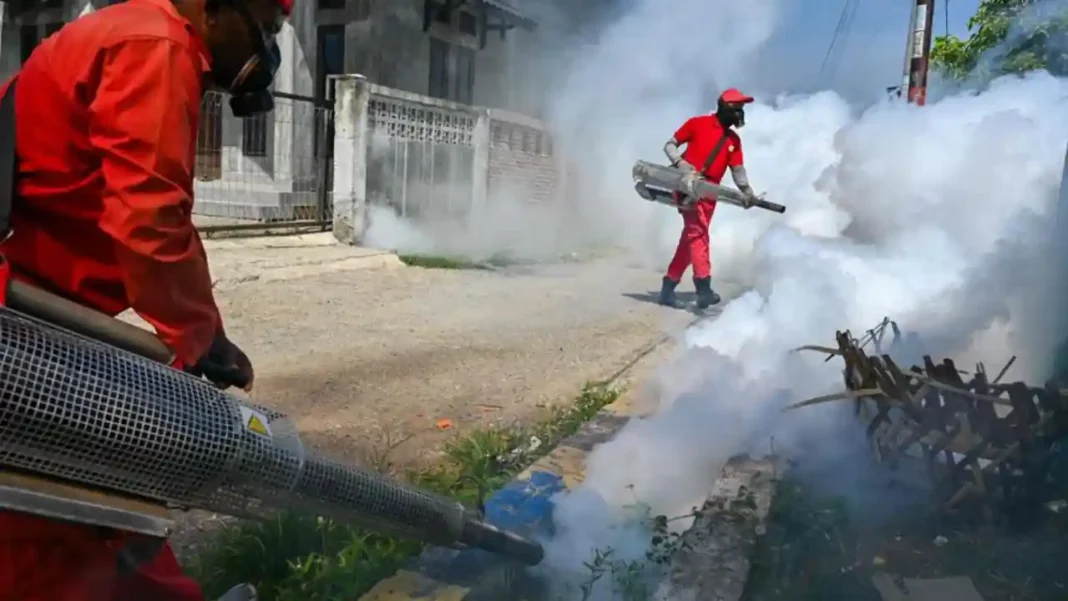The French overseas territory of Guadeloupe has entered an epidemic phase of dengue fever, regional authorities confirmed on Thursday. The outbreak is attributed to the dengue virus serotype 3 (DENV-3), a strain that has rarely circulated in the past two decades.
In a joint statement issued by the mayors’ association and regional health officials, authorities warned that the uncommon strain raises concerns of severe cases and a high caseload if prevention efforts are not intensified.
Alarming Spike in Cases
Recent data reveals a sharp rise in dengue cases across the territory. From late September to mid-October, 97 percent of the 62 virus samples analyzed were identified as DENV-3, according to health authorities. The number of weekly clinic visits for suspected dengue has surged from the seasonal average of 80 to approximately 540 by the end of October.
Emergency room visits have also escalated, with hospitals reporting around 40 dengue-related admissions weekly, compared to just 25 in September. Health officials believe the spike could worsen without immediate action to control mosquito populations and their breeding grounds.
Dengue’s Symptoms and Risks
Dengue fever, transmitted by the Aedes mosquito, often causes high fever, fatigue, and severe body aches. While most infections remain asymptomatic, severe cases can lead to dangerous complications, including internal bleeding and hemorrhaging from the mouth and nose.
The Aedes mosquito, distinguished by its black-and-white striped legs, thrives in stagnant water pools. Following recent rainfall, Guadeloupe authorities have stressed the need to eliminate potential breeding grounds near homes and public areas.
Prevention Measures Urged
Authorities have issued guidelines urging residents to take proactive measures against the spread of the disease. Recommended actions include wearing loose, protective clothing, applying insect repellent, using bed netting, and removing standing water where mosquitoes lay eggs.
“The community must mobilize to combat mosquito vectors and eliminate conditions that support their breeding,” the joint statement emphasized.
Global Context: A Growing Threat
The dengue epidemic in Guadeloupe mirrors a global trend of rising cases, driven by climate change and urbanization. Warmer temperatures and changing weather patterns have expanded mosquito habitats, turning dengue into a year-round crisis.
In October, the World Health Organization (WHO) highlighted the alarming scale of the global dengue problem. The number of reported cases worldwide has approximately doubled annually since 2021, with over 12.3 million cases and 7,900 deaths reported in the first eight months of 2024 alone.
Preparing for Long-Term Challenges
As Guadeloupe battles its outbreak, the resurgence of DENV-3 serves as a reminder of the growing public health challenge posed by vector-borne diseases. Local authorities are calling for increased vigilance and collective action to mitigate the crisis.
Efforts to curb the epidemic will require a sustained focus on mosquito control, public awareness, and coordinated healthcare responses to manage severe cases. Without swift action, officials warn, the situation could escalate further in the weeks ahead.



